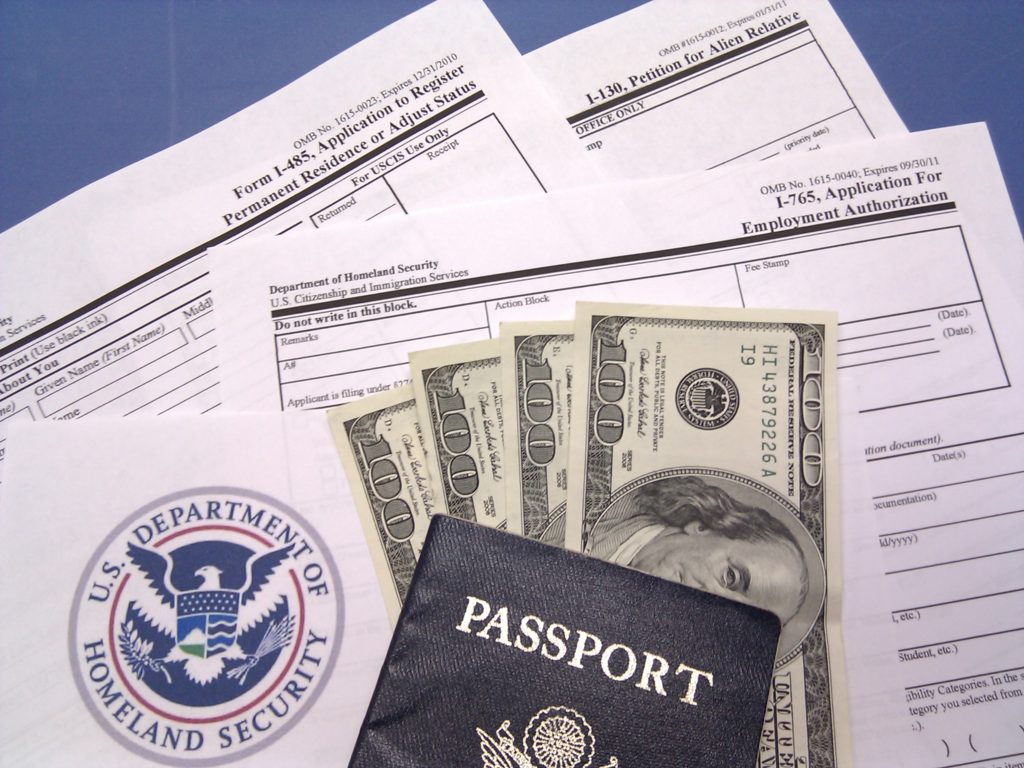The Office of Immigration and Citizenship Services (Uscis) has just announced changes in the documentation that will be required for the application of the Cuban Adjustment Act. From now on, the United States will not recognize the birth certificates that Cuba’s consulates issue to the children of Cubans born outside the island because it considers that “it is not sufficient evidence to prove that you have Cuban nationality.”
The measure affects people who were born outside of Cuba and apply for legal permanent resident status in the United States under the Cuban Adjustment Act.
So far, a Cuban consular certificate documenting the birth outside of Cuba of a person who is the daughter of at least one Cuban father was admitted as proof of Cuban citizenship.
To prove Cuban nationality it will be necessary to present valid Cuban passports and documents of the Cuban Civil Registry issued in Havana.
Below we reproduce the full text of the new policy of the US Immigration Service:
USCIS no longer considers a consular certificate documenting the birth outside of Cuba of a person who is the daughter of a Cuban father as sufficient evidence of Cuban citizenship. This policy memorandum aligns with Cuban laws and applies to people who were born outside of Cuba and apply for legal permanent resident status in the United States under the Cuban Adjustment Act (CAA).
The policy memorandum (PDF, 2.06 MB) (in English) terminates the Matter of Vazquez case as an adopted decision, which held that a Cuban consular certificate documenting the birth outside Cuba of a person who is the daughter of at least one parent Cuban is accepted as proof of Cuban citizenship. Under the updated guidance, USCIS will not consider a consular certificate as sufficient proof of Cuban citizenship. This will be the case even if the consular certificate contains a declaration of citizenship.
USCIS will continue with the acceptance of valid Cuban passports and documents of the Cuban Civil Registry issued in Havana as proof of Cuban citizenship.
The interim and final policy memoranda are official USCIS policy documents and go into effect on the date they are issued. For more information about USCIS and its programs, please visit www.uscis.gov/es or follow us on Twitter (@uscis_es), YouTube (/ uscis), Facebook (/uscis.es), and Instagram (@uscis).
GOBIERNO NORTEAMERICANO ANUNCIA CAMBIOS PARA ACOGERSE A LEY DE AJUSTE CUBANO.
Inmigración de EEUU no aceptará un certificado consular para demostrar la nacionalidad cubana.
La Oficina de Servicios de Inmigración y Ciudadanía de EEUU (USCIS, sus siglas en inglés) anunció el jueves una actualización de la “política sobre determinación de ciudadanía para los nacidos fuera de Cuba”.
“USCIS ya no considera un certificado consular que documenta el nacimiento fuera de Cuba de una persona que es hija de un padre cubano como evidencia suficiente de la ciudadanía cubana”, señaló la oficina en una nota que publica en su web oficial.
“Este memorándum de política se alinea con las leyes cubanas y aplica a las personas que nacieron fuera de Cuba y solicitan el estatus de residente permanente legal en EEUU bajo la Ley de Ajuste Cubano (CAA, por sus siglas en inglés)”, precisó.
El memorándum de política (PDF, 2.06 MB, en inglés) rescinde el caso Matter of Vazquez como una decisión adoptada, que sostuvo que un certificado consular cubano que documente el nacimiento fuera de Cuba de una persona que es hija de al menos un padre cubano es aceptado como prueba de ciudadanía cubana.
“Bajo la guía actualizada, USCIS no considerará un certificado consular como prueba suficiente de ciudadanía cubana. Este será el caso aún si el certificado consular contiene una declaración de ciudadanía”, puntualizó.
El organismo añadió que “continuará con la aceptación de pasaportes cubanos válidos y documentos del Registro Civil Cubano expedidos en La Habana como prueba de ciudadanía cubana”.
La nota añade que “los memorandos de políticas interinos y finales son documentos de políticas oficiales de USCIS y entran en efecto en la fecha en que se expiden”.
Recientemente el Gobierno cubano eliminó el requisito de avecindamiento, que obligaba a residir en la Isla, al menos por 90 días, a quien deseaba obtener la ciudadanía cubana por medio de sus padres.
Aunque el pasado 12 de enero el expresidente Barack Obama eliminó la política de “pies secos, pies mojados” que daba refugio inmediato a todos los emigrantes de la Isla que llegaban a territorio estadounidense, la Ley de Ajuste Cubano se mantiene vigente.
Bajo esta ley las personas que entran legalmente a EEUU, entre otros casos, argumentando asilo político, pueden regularizar su estatus pasado el año. Sin embargo, es una opción que las lleva directamente a un centro de detención para inmigrantes y según han considerado varios especialistas las posibilidades de obtener ese asilo son pequeñas.
En el año fiscal 2017, EEUU devolvió a 160 cubanos. Más de 37.000 aguardan la deportación, mientras el número que está recluido en centros de detención pasa del millar y medio.
Agencies/CiberCuba/Tania Costa/USCIS/DDC/Internet Photos/ Arnoldo Varona/ TheCubanHistory.com
THE CUBAN HISTORY, HOLLYWOOD.









